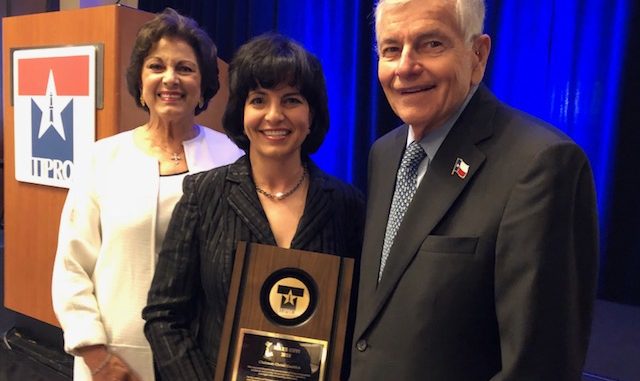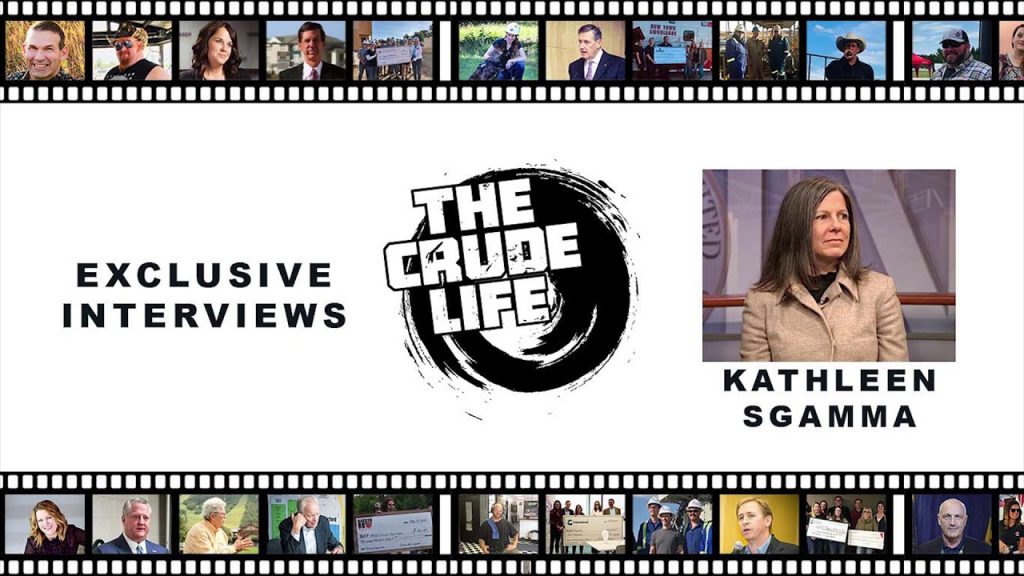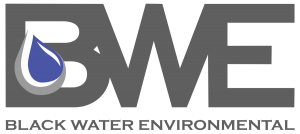

The Crude Life Morning Show: Play Hard Work Hard Episode 13
Daily Rig Count
source: tradingeconomics.com

HOUR ONE PLAY HARD: Jason Spiess and Sterling are joined in the first hour by JP Warren, Capital Petroleum Consultants and Round the Rotary Podcast.
The first segment with the trio dives into what “Round the Rotary” podcast is. JP explains the genesis behind the bottle of liquor guests bring to the show and why he doesn’t like talking about oil and gas business during his show.
The second segment with the trio turns into a session of Sterling and JP swapping Saudi Arabia stories. JP worked in Saudi Arabia for an oil and gas company, while Sterling grew up in the oil and gas city-company Dhahran.
The segment ends with the trio pontificating on what a 1-10 day vacation or strike would do for the American conversation about oil and gas development. Jason offered the idea of a three-day industry strike so the national media from The View to SportsCenter is talking about the impact of said strike, whereas JP thought three days was too little and should a couple weeks. Sterling added, possibly with snark, possibly not, we are still unsure at this point, nevertheless… he still added the idea that if a one day strike happened, the government would probably just nationalize oil at that time.
In HOUR TWO we WORK HARD with our Newsmaker Interview: Chairperson of the Texas Railroad Commission Christi Craddick and Kathleen Sgamma, president, Western Energy Alliance
In the first segment of Work Hard, Commissioner Christi Craddick is interviewed by The Crude Life Content Correspondent Genneca Houser.
Craddick is one of three commissioners at the Texas Railroad Commission, and she is also the longest serving of the three to this elected position. We were lucky enough to get some time with Commissioner Craddick to recap the last year and catch a glimpse of what she anticipates to come.
–We begin with Chairman Craddick breaking down a little bit of history and information about the Texas Railroad Commission. They are the oldest oil and gas regulators in the world, and they’re based in Texas. They focus on pipelines and pipeline safety, and there are roughly 470,000 miles of interstate and intrastate lines in Texas and roughly another 500,000 miles of gas utilities lines in Texas to maintain. They also do coal, coal mines, lignite mines, and uranium mines; so, needless to say, it’s a big job to maintain safety. They also regulate carbon capturing in Texas oil fields. Production wise, about a 3rd of the country’s oil and a 4th of the country’s gas is coming out of Texas.
“I think we’ve got one of the best agencies in the entire state, and frankly probably [one of] the best agencies is the entire country when you talk about oil and gas regulations.” – Commissioner Christi Craddick
– To prevent waste and to protect the environment are the top two priorities of the agency. Commissioner Craddick talks about the idea that having rules and regulations is one of the best ways to make sure that the practices in the field maintain the safety practices. There are about 150 inspectors for the oil and gas division, approximately 30 people inspecting the coal and coal mines, and around 70 inspectors in the pipeline division and they’re out in the field everyday to help make sure everyone is in compliance with the rules and regulations. The idea isn’t to over-regulate, though; once something is found not in compliance, there is an opportunity to fix the issue before fines and penalties are given. There’s also a great many resources found on the website so that everyone has an opportunity to be in compliance. Everyone does get opportunities to operate within the rules and regulations; but if there’s a refusal to play by the rules, the Texas Railroad Commission will shut the operation down.
– Next we discuss the impacts of climate activism on the Texas oil and gas industry and how it has put a spotlight on flaring in Texas. This has been an on-going challenge that will hopefully continue to see progression. A goal is to build the infrastructure so that flaring won’t be necessary.There is also a desire to update the systems and upgrade the data that is gathered in the field. “There is no magic answer” as Commissioner Craddick says, but the industry is changing and progressing and there will most likely continue to be an on-going conversation on how to work with companies to implement the best practices.
“Flaring is a priority to find out how we do it better and how we do a lot less of it in this state. We’ve talked about it a lot in the last 18 months in Texas.” – Commissioner Craddick
– After going from all-time highs in 2019, then there was the trade dispute in the Middle East and Covid. So, mid-March 2020, there was talk about the possibility of prorationing for the first time since the 1970s. What this would do is nix the free market and make it mandatory for businesses to only produce what was “rationed” to them by the Commission. But the demand had dropped by nearly 100 million barrels per day on top of the closures due to Covid. The conversation went on for roughly two months, and there was an 11 hour hearing last April while people around the world waited to find out what the decision was. Ultimately, the decision was not to proration and to trust in the free market to even itself out.
“We are glad we’re past that conversation today and instead have tried to use other rules and waivers that we’ve been allowed to look at as an agency to try to keep this industry alive during this short period…” – Commission Craddick
– Although we most likely will not see the conversation about prorationing come back, there are other obstacles Commissioner Craddick is looking at having to overcome in the next few months. The Paris Climate Accord, the possibility of shutting down the Keystone XL Pipeline, the journey to getting carbon neutral and the rest of the government regulations that come with the Biden/Harris administration may be the greatest hurdles in the near future. The hope is to use Texas as a model for utilizing each industry in a balance to bring about the best economy rather than choosing to model the strategy off of California.
“We have common sense approaches.. and that’s why our economy continues to grow and people are moving to Texas…” – Commissioner Craddick
– Commissioner Craddick continues to talk about positive hopes for the future based on the current trajectory. She discusses countries like Taiwan that are beginning to make the change to cleaner energy and how the developments made in the United States are helping the world with progressing to cleaner energy. The belief is that more will get done when ind
“People who argue that we don’t have clean energy, they haven’t looked at the fact that our methane emissions have gone way down in the last ten years not because of over regulation but because industry’s seen the value and put the technology in place that they need to without being told to… “ – Commissioner Craddick
– Some words in closing, Commissioner Craddick talks about some things to keep in mind over the next year. She says to be watching the budget, and understand that the oil and gas industry isn’t going anywhere.There are simply too many things in our lives because of oil and gas whether a person drives or not. Rather than choosing an energy source, continue to have conversations to help everyone move forward positively and in balance.
If you’d like to find out more, be sure to check out these links:
Commissioner Craddick’s Website
In the second interview during our Work Hard portion of The Crude Life Morning Show is Kathleen Sgamma, president, Western Energy Alliance.

Kathleen Sgamma , president, Western Energy Alliance comments on the executive orders ordering a ban on oil and natural gas development on public lands.
A ban on oil and natural gas development on public lands by President-elect Joe Biden would severely harm the economies of eight western states, according to a Wyoming Energy Authority study conducted by University of Wyoming Professor Tim Considine. Over the next four years, the human cost of fulfilling Biden’s campaign pledge would be an average of 72,818 fewer jobs annually. Lost wages would total $19.6 billion, economic activity would decline $43.8 billion, and tax revenues would drop $10.8 billion by the end of Biden’s first term in Alaska, California, Colorado, Montana, New Mexico, North Dakota, Utah, and Wyoming. By 2040, Gross Domestic Product (GDP) would decline by $670.5 billion and average annual job losses would exceed 351,000 across the West.
Wyoming, which ranks first in natural gas production on public lands and third in oil, would lose $138.3 billion in GDP over the next 20 years. Between 2021 and 2024, a drilling ban would eliminate:
- 18,228 jobs on average each year
- $10.6 billion in oil and natural gas investments
- production valued at $3.8 billion
- $2.1 billion in tax revenue to the state
- $10.3 billion in GDP
- $4.7 billion in wages.
Across the eight states that together provide over 97 percent of federal onshore production, closing off public lands over the next 20 years would result in:
- Average annual job losses reaching 351,555 by years 2036 through 2040
- GDP dropping by $670.5 billion
- Oil and natural gas investment plummeting $389 billion, leading to a loss of $502.6 billion worth of production
- The elimination of $159 billion in state tax revenues and $300 billion in lost wages.
The report entitled, “The Fiscal and Economic Impacts of Federal Onshore Leasing and Drilling Bans,” analyzes the economic impacts of two potential scenarios: a leasing moratorium and a ban on approving drilling permits. The full report is available online.
The Crude Life Daily News Update for the Radio on The Podcast
Sponsors, Music and Other Show Notes

Sponsor of the Day: Black Water Environmental

Phone Line Sponsor: Swan Energy, Inc. 866.539.0860

Featured Music: Moody River Band
For sponsorship information on The Crude Life Morning Show Play Hard Work Hard, email studio@thecrudelife.com or click here.
For guest, band or show topic requests, email studio@thecrudelife.com
Spread the word. Support the industry. Share the energy.
If you have a chance, check out The Crude Life Podcast!

